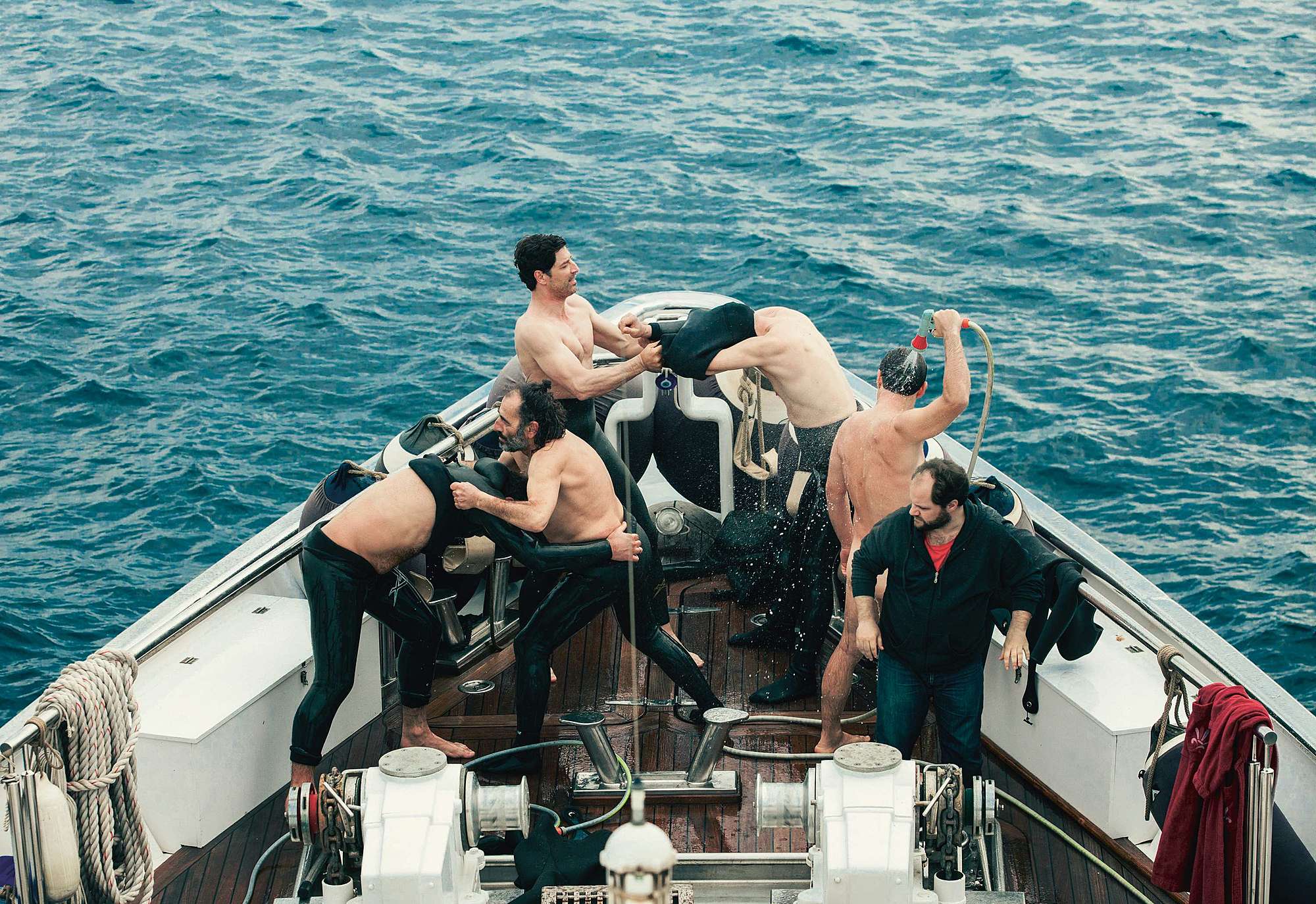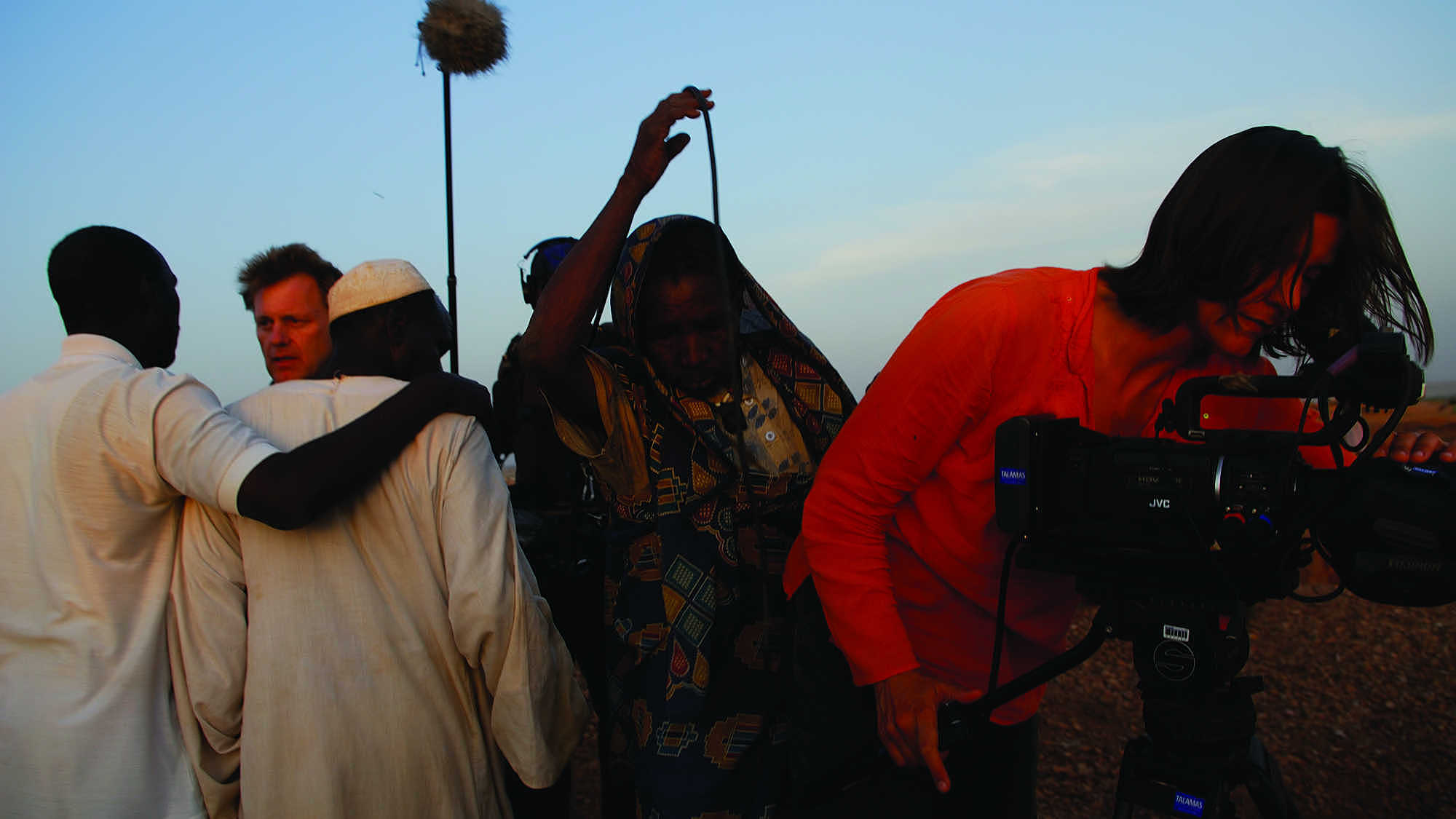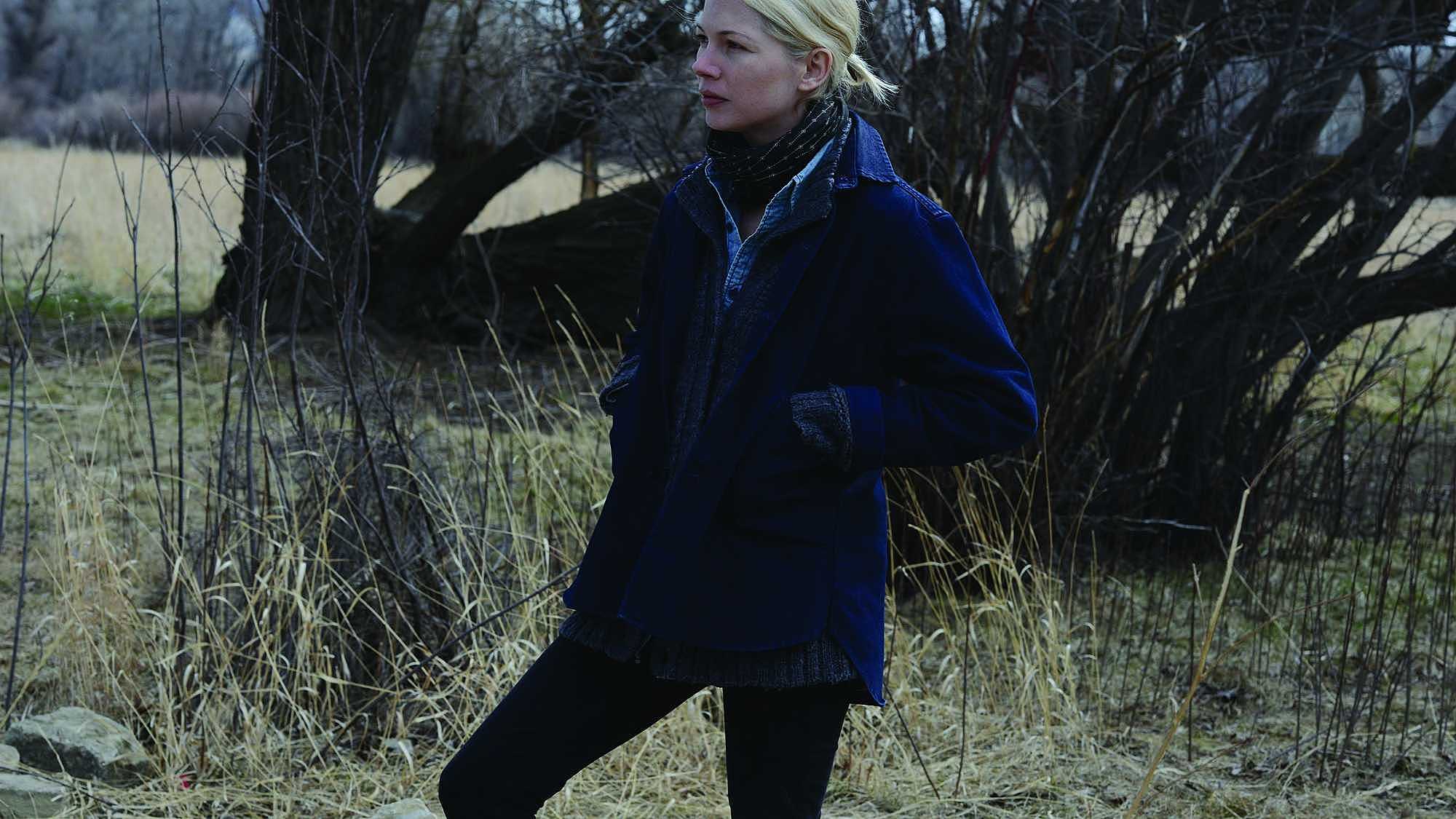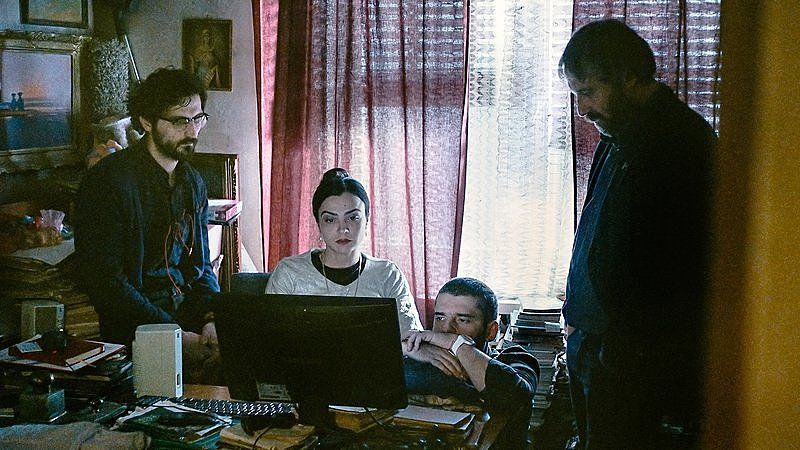The Pantograph Picks: NZIFF 2016
Our top twelve picks of 2016's New Zealand International Film Festival.
Our film team – Brannavan Gnanalingam, Doug Dillaman, Eleanor Woodhouse, and Jacob Powell – bring you their top picks from this year's New Zealand International Film Festival
You can feel it in the air. Not the humidity from our most recent copious downpour, but the anticipation that soon we’ll be nestled in theatres across the country. The familiar sensations will return: the thrill of flicking through the programme, deciding which films will make the cut; being part of a packed Civic or Embassy crowd laughing, groaning, falling silent together; and the recurring anxiety that you’ll miss out on that One Great Film that everybody else sees and loves that never returns to our shores.
We’re excited to be going all out on our coverage of the New Zealand International Film Festival this year. Our film team (along with a few guest contributors) will be bringing you reviews, interviews, essays and a podcast or two. We’re also sponsoring a film! It's Maren Ade’s finely observed, uncomfortably hilarious new movie, Toni Erdmann. It was a smash critical hit at Cannes this year: not only was it the mostly highly regarded film in the Screen Jury Grid (which compiles ratings from a panel of international critics), but it was the highest-rating film in the poll’s 20 year history. Needless to say, we’re looking forward to it.
After much gnashing of teeth, we’ve selected twelve other films we're also anticipating. As with most years, this is only the tip of the iceberg, leaving off incredible retrospective programming (including Orson Welles’ Chimes at Midnight, Robert Altman’s McCabe & Mrs Miller, and King Hu’s A Touch of Zen), two films from visiting legend Terence Davies (Sunset Song & A Quiet Passion) and several ambitious and deserving New Zealand films. But as much as it pains us to omit a wordless aquatic Studio Ghibli-produced reverie or a roof-raising celebration of R&B legend Sharon Jones from the list, like all NZIFF-goers, we must draw the line somewhere.*
Feature films usually regard fashion as a subject of ridicule and treat it with a Zoolander attitude, so thank god for the French and thank god for Olivier Assayas. After 2014’s excellent Clouds of Sils Maria – where Assayas and Kristen Stewart proved a match made in heaven – Stewart returns to play Maureen, an assistant and couture shopper for a high-profile actress in Paris. What makes me almost deliriously excited is that the fashion world setting is the context for a ghost story – Maureen is attempting to connect with her dead twin brother. Assayas has already shown an aptitude for the ghostly after the eerie climax of Clouds, and I cannot wait to see what a full-on horror looks like under his hand. EW
The best NZIFF 2016 film I’ve previewed thus far (beating the heartstopping Green Room by a hair) is Kirsten Johnson’s memoir/self-interrogation of twenty-five years of documentary camerawork. From Michael Moore to Laura Poitras, she’s been around the world and collected countless hours of footage that’s never seen the light of day – until now. By assembling this footage into an associative mosaic that captures both the joys and the moral dilemmas of her work, Johnson and editor Nels Bangerter have created something far richer than the deleted scenes reel you’d expect from a thumbnail description. Cameraperson is a one-of-a-kind work that may change the way you look at documentaries. It may move you to tears and laughter, or may simply change the way you look at somebody’s hands when they’re telling a story. DD
After a thematic diversion in her last film – the 2013 thriller Night Moves – fans of Kelly Reichardt will be rejoicing her return to what she does best: sustained studies of women under duress. But even when traversing familiar subject matter, Reichardt is never narratively, structurally, or generically staid – as her magnificent western Meek’s Cutoff in particular attests. Here, again, she personally innovates. Certain Women interweaves three narratives adapted from short stories by Maile Meloy, all set in Montana. One of the stories features Reichardt favourite Michelle Williams, and while it will be a joy to see how this creative relationship continues to develop (Williams starred in both Wendy and Lucy and Meek’s Cutoff), I'm excited for Reichardt’s new collaborations with similarly excellent actresses Laura Dern and Kristen Stewart. EW
“I'm the king of the world on a boat like Leo / If you're on the shore, then you're sure not me-oh...”
– I’m On A Boat by The Lonely Island
Despite a crumbled economy, the Greek ‘new wave’ or ‘weird wave’ — call it what you will — is producing some of the most electrifyingly idiosyncratic cinema of the day. A frequent collaborator with compatriot Yorgos Lanthimos (she has a production credit on Dogtooth, which is all the recommendation you need) Athina Rachel Tsangari shifts from studying female relationship eccentricity in her 2010 feature Attenberg to taking a sharp allegorical poke at ridiculous male bravado in NZIFF 2016 selection Chevalier. I, for one, am a dude who looks forward to viewing a smart feminine critique of dick-swinging stupidity whilst simultaneously looking sideways at my male friends in the knowledge that we’ve probably been those idiots on occasion, though perhaps minus the boat. JP
Before recommending Albert Serra, I should hastily say that his films aren't for everyone. They're the type of films that use boredom as a narrative tool. There are some of us who are entirely happy with that approach. The Death of Louis XIV will be the type of film to let wash over you. It would be irresponsible of me to suggest substances may enhance that process, although it may be irresponsible not to suggest that option. Plus film buffs get to see the glories of Jean-Pierre Léaud (one of this writer's favourite actors), along with what is no doubt an homage to Roberto Rossellini, by one of contemporary cinema's most distinctive auteurs. BG
It’s always hard to make room in one’s NZIFF schedule for long films, and Ryusuke Hamaguchi’s international breakout Happy Hour is the longest. But look at it from a programmer’s perspective – instead of using five hours to play three populist favorites like a fashion doco, a WWII courtroom story, and an Amerindie drama, they booked a film whose prohibitive runtime is essentially commercial suicide.. The last time they did this, it was Norte, The End of History, a four-hour long novelistic drama that was the best film I saw at NZIFF 2013. Word on the festival circuit for Happy Hour is rapturous, commending its patient but rewarding attention to detail. A long afternoon with four Japanese women in their late 30s could be your best film of the fest, and unquestionably your best value for money. DD
Chantal Akerman, the prolific, constantly confounding, yet rewarding filmmaker – known best for the harrowing Jeanne Dielman – has said that her mother Natalia has always been “at the heart of my work”. How glorious that a muse be found in a mother, rather than a nubile youth. This documentary explores their relationship via conversations that took place soon before Natalia’s death, and despite being filmed on a Blackberry and home video cameras, Akerman is a formally exquisite filmmaker and this should be no exception. No Home Movie will make for an emotional viewing experience, and its poignancy magnified by the fact that this was Akerman’s final film – she committed suicide last October, two months after its premiere. EW
Canadian / New Zealander Alison Maclean made the fantastic fish-out-of water film Crush in 1992 and then returned overseas. She's clearly shown that she can translate difficult subject matter to the screen – Denis Johnson's Jesus' Son, her last feature in 1999 – into something distinctive, so there are high hopes for Eleanor Catton's marvellous debut The Rehearsal. It remains to be seen whether the film can capture Catton's narrative wizardry within the confines of a film, but with the likes of Emily Perkins (script), James Rolleston and Kerry Fox (as leads) and Maclean herself involved, it's certainly promising a lot. BG
Pietro Marcello’s Lost and Beautiful is allegedly a documentary that features a talking water buffalo. If that's not enough to sell a film, I'm not sure what is. The film uses the buffalo to comment on contemporary Italian ruin and indifference. If it's anything like the way the donkey was used in Robert Bresson's Au Hasard Balthazar (a film to which this has been compared), the film promises to be devastating. BG
I’m up and down with family dramas (a disproportionate number seem to be peopled with the kind of privileged asshats for whom I feel little affinity and even less interest). Proving he can find the humorous and the humane in the most morose of settings with his excellent 2006 feature, The Death of Mr. Lazarescu, Romanian filmmaker Cristi Puiu promises to make observational dramedic hay at a more modest family gathering in his 2016 Palme d'Or nominated Sieranevada. Playing, like Lazarescu, in more or less real time, I suspect Puiu’s reflections on life and society through a familial prism will be as gripping, insightful, and quietly amusing as ever with nary a luxury sports car or tray of caviar canapes to be seen. JP
Consensus from Cannes is that Paterson is top-shelf Jarmusch, which is a well-stocked top shelf indeed! Aside from the trifling humour to be found in the conflation of the lead actor’s name and his character’s profession—come on, Adam Bus Driver people!?—I have an interest in stories drawn from commonplace contexts. Films like Jem Cohen’s Museum Hours or Andrei Konchalovsky’s The Postman’s White Nights (both recent NZIFF selections) find relational complexity in the interaction of everyday people at their work or in their homes and Paterson seems promisingly couched in the so-called ‘mundane’. Dog people should also note that Nellie the English bulldog posthumously won 2016’s Palm Dog award for the role of Marvin (sadly she passed a couple of months before the film’s premiere). I’m ready to be wowed, in a laid-back Jarmuschy kind of way. JP
The Incredibly Strange section acts as a magnet for some viewers and a deterrent for others. This year looks particularly promising, with the part-animated mass-shooting documentary Tower, Polish vampire-mermaid musical The Lure, and space conspiracy mockumentary Operation: Avalanchenotable under-the-radar highlights. Under the Shadow gets the nod not only because its director Babak Anvari is visiting the festival, but also because a supernatural horror film cum domestic drama set during the end of the Iran-Iraq war that garners positive comparisons to 2014 Australian mother-daughter horror The Babadook augurs to be a singular treat. DD
Browse the rest of the NZIFF programme here




